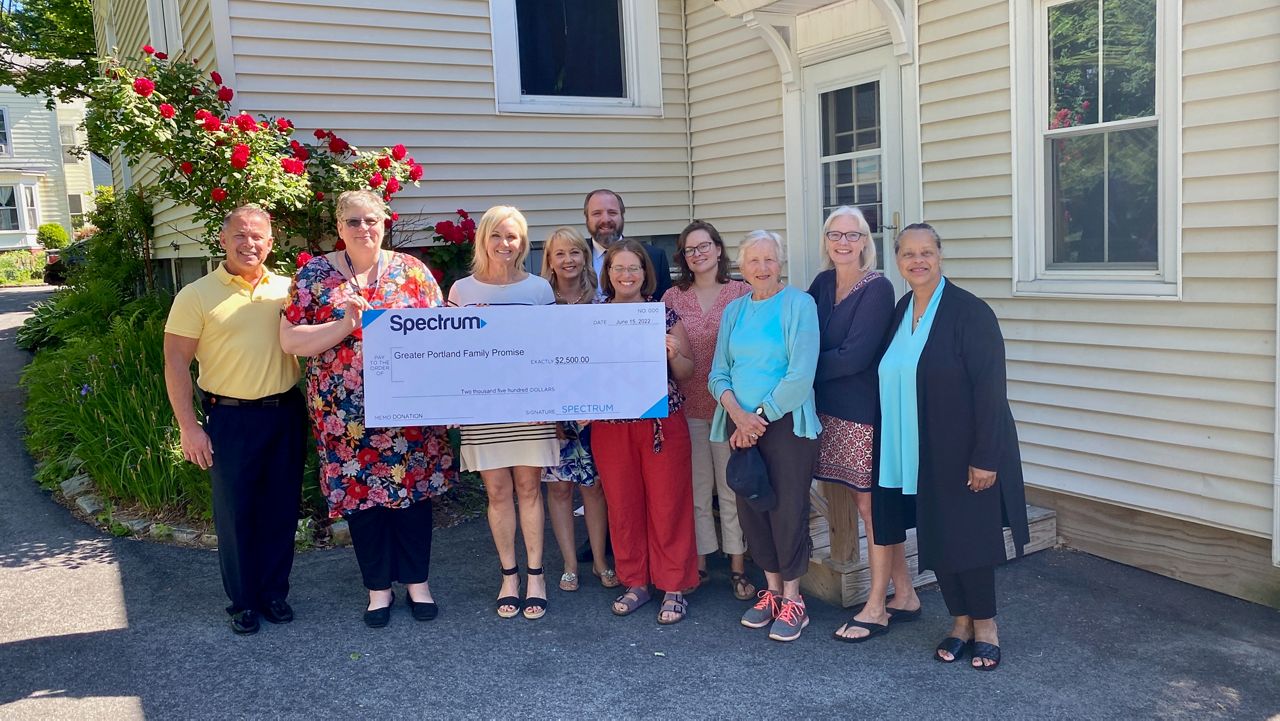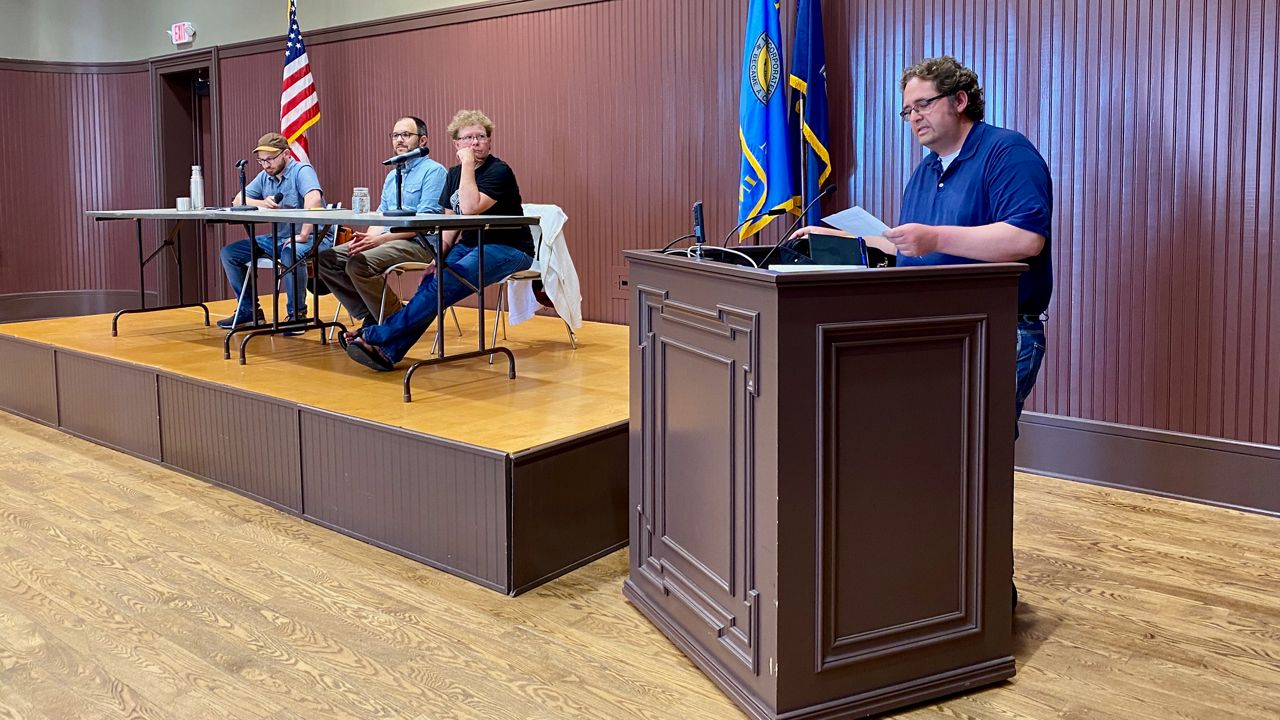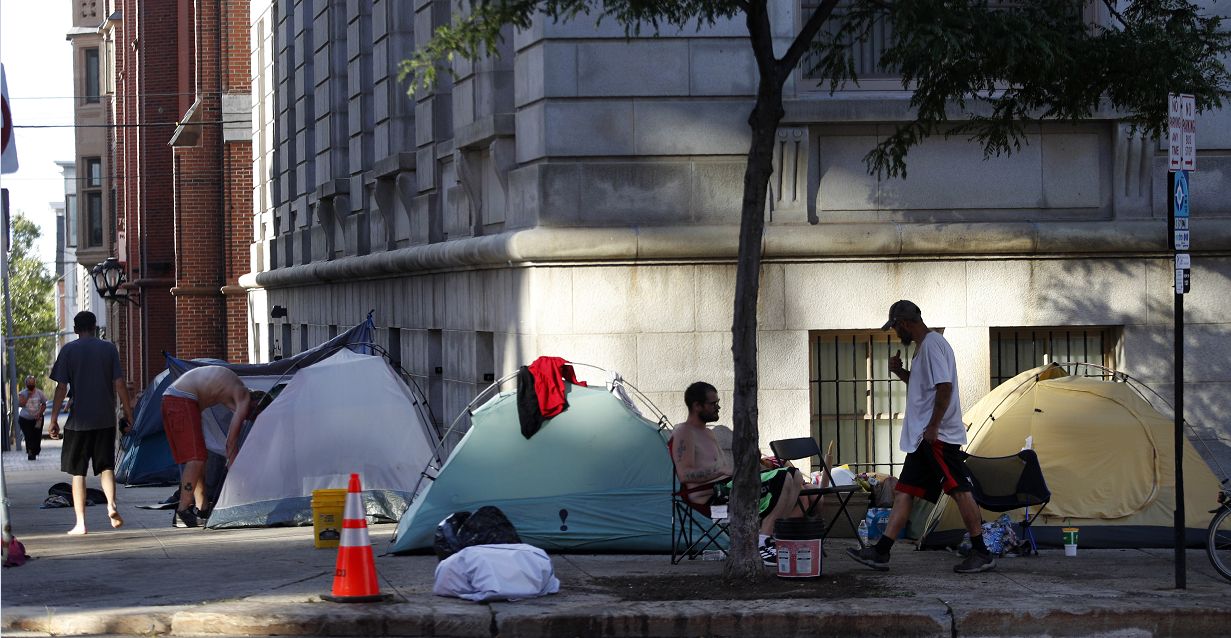Kevin Bunker has no problem making money, he just wants to make sure he can sleep at night.
That philosophy is at the core of how Bunker operates his company, Developers Collaborative, which he co-founded in 2007 to build and renovate properties in Maine.
Bunker made headlines in January when he opened Freedom Place, a 38-bed affordable housing project for women in Portland’s West End, and he is now working on the project’s second stage. Recently, he talked with Spectrum News about his company and how his conscience drives his business decisions and the projects he takes on.
Based in Portland, Developers Collaborative is known for a variety of building projects, but housing is the company’s primary focus. About 75 percent of the company’s projects are housing, with two-thirds of those projects classified as affordable housing.
“You can make a good living in real estate and still do things that make you feel good,” he said.
The company’s headquarters are in office space that used to be Catherine McAuley High School. As someone who examines most properties he considers purchasing through the lens of potential housing, the former McAuley High School property on Stevens Avenue in Portland offers plenty of promise.
Existing structures and some new construction are earmarked for senior housing, with four more buildings slated for what used to be the school’s athletic fields. The main building, where Bunker keeps his offices, will house amenities for the housing community he’s building on campus, including a café and a fitness center with a swimming pool.
“It’s coming together,” he said.
Bunker, 47, grew up in Rockland, and his education includes a master’s degree in urban planning from Harvard University. As he was working on his degree, Bunker began thinking about being a developer, but wanted to make sure to incorporate his perspective on long-term community planning.
He said it's important that private development have a positive impact on the community, the people, the economy and the environment developers are working to serve.
“It’s private, but it’s not yours,” he said.
Bunker’s work has cemented his reputation as a builder who wants to create housing, particularly affordable homes around the state.
Two of the state’s most important voices in the push for more affordable housing praised Bunker for his community-first approach.
“Kevin brings a wonderful blend of professionalism, expertise and a genuine understanding of Maine to the affordable housing cause,” Dana Totman, President and CEO of Avesta Housing, said. “His infinite determination contributes greatly to getting affordable housing built.”
Dan Brennan, Director of MaineHousing, the quasi-public entity that has often helped finance Bunker’s affordable housing projects, agreed with Totman.
“Affordable housing developers like Kevin Bunker are critical to helping solve our affordable housing crisis,” Brennan said. “Kevin has always been in the top tier of (affordable housing) developers in our state,”
Not everything the collaborative builds is strictly affordable housing. As Bunker put it, “We’re not allergic to making money,” but his company takes a thoughtful approach even to market-rate projects.
“If it doesn’t look good, if it doesn’t feel right, we don’t do it,” he said.

The Freedom Place project
Bunker is also not afraid to change his mind about the scope of a project, and Freedom Place is a prime example.
Bunker’s interest in the property, at 66 State Street in Portland, came about when he learned that Catholic Charities was selling the building. Bunker saw an opportunity to build multiple units of affordable housing.
But then he was introduced to Amistad, a nonprofit that works to help people with mental illnesses, people with substance use problems and the chronically homeless. Amistad was renting space at Freedom Place at the time.
“I got to really like and respect what they did,” Bunker said.
When Bunker learned Amistad was planning a women’s recovery program, he shifted his plans for Freedom Place to creating affordable housing for vulnerable women.
“This would be a whole new program that’s desperately needed that nobody else in the city was doing,” he said.
When Brennan learned about the shift in priorities, MaineHousing helped provide some funds for the project. The U.S. Department of Housing and Urban Development helped fund construction and renovation work.
“(Bunker) is now focusing on creative ways to provide housing with a very high-public purpose, in the fastest way possible for some of our most vulnerable citizens — those in recovery, those experiencing long-term homelessness and those seeking a new life in Maine,” Brennan said.
Bunker said Freedom Place offers 38 beds of affordable housing for women. Those staying at Freedom Place, pay 30% of their income, whatever it is, to live there. If they make no money, he said, then they pay nothing.
Bunker acknowledged he hasn’t made nearly as much money as he thought he was going to from the project, but the altruistic nature of creating something purposeful is worth it.
“I probably left one to two million on the table, frankly,” he said.
Bunker has more in store for Freedom Place. He’s about to begin work on a new building on the property that will offer 30 beds when it's finished early next year.
Bunker said if he didn’t let his conscience guide him, he would not like what he and his company have become.
“I want to be the same guy at home that I am at the office,” he said.









